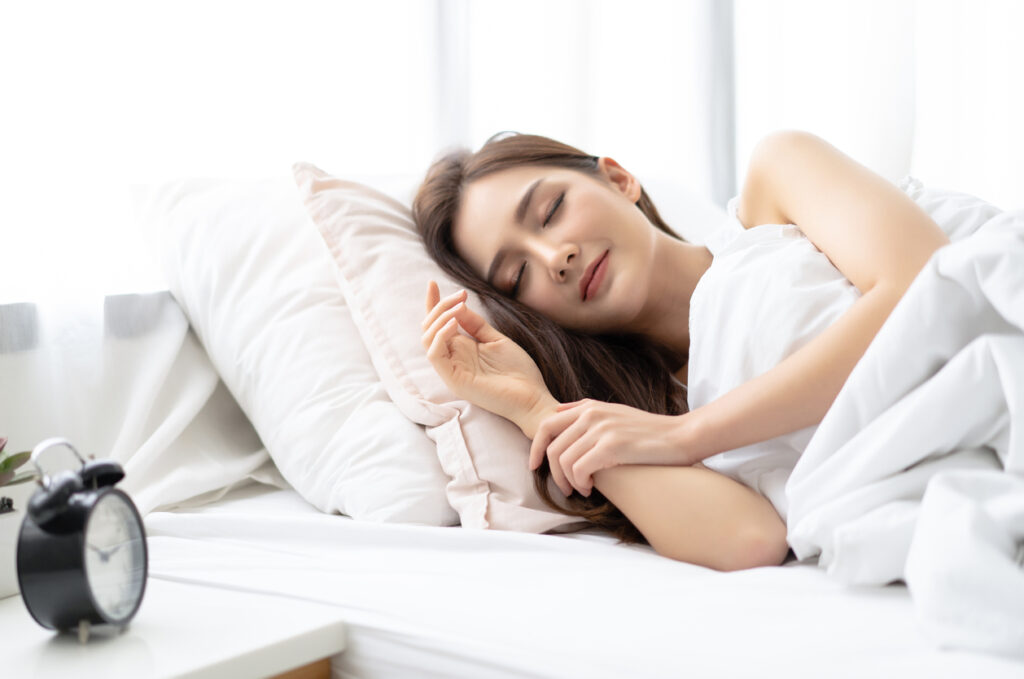In today’s fast-paced modern life, deep, restful sleep has become a luxury. But sleep isn’t just an optional break—it’s a critical foundation for physical repair, memory consolidation, and mood regulation. If you struggle with poor sleep quality, this guide will walk you through step by step to reclaim peaceful nights.

I. Create an Ideal Sleep Environment
An environment designed specifically for rest is the first step to good sleep.
Light Management
Darkness is a key signal for your body to start preparing for sleep. Use blackout curtains or an eye mask to keep your bedroom as dark as possible. One hour before bed, avoid blue light from electronic screens like phones and computers—this light disrupts the sleep hormone melatonin.
Temperature Control
A cool room helps lower your core body temperature, which triggers feelings of sleepiness. Keep your bedroom temperature between 18–22°C (65–72°F)—this range is ideal for most people.
Sound Isolation
A quiet space is essential for undisturbed sleep. If you can’t avoid noise (like traffic or neighbors), try a white noise machine. Soft natural sounds—such as rain or flowing streams—also work well to mask unwanted distractions.
II. Build a Steady Pre-Sleep Routine
Your body needs time to shift from an active state to a resting one. Start your “relaxation mode” one hour before bed.
Stick to a Fixed Routine
Do the same calming activities every night before sleep. This could include reading a light book, taking a warm bath, meditating, or listening to gentle music. Warm baths are especially helpful: after you get out, your body temperature drops slightly, which naturally makes you feel sleepy.
Avoid Stimulants
Stay away from things that excite or stress your brain. Skip intense movies, work emails, or heated conversations. Let your mind wind down gradually—this helps you fall asleep faster.
III. Follow a Regular Sleep Schedule
Your body has an internal clock (circadian rhythm), and regularity is the best way to keep it on track.
Wake Up and Sleep at the Same Time
Try to go to bed and wake up at the same hour every day—even on weekends. This is the most effective way to stabilize your circadian rhythm. Over time, your body will start feeling sleepy or awake naturally at these times.
Use Your Bed Only for Sleep
Reserve your bed strictly for sleeping. Don’t work, eat, or scroll through your phone while lying down. This trains your brain to associate “getting into bed” with “it’s time to go to bed.”
IV. Improve Daytime Habits
The choices you make during the day have a big impact on your sleep at night.
Get More Natural Light
Spend time in sunlight during the day—especially in the morning. Natural light helps calibrate your circadian rhythm, keeping your “daytime awake” and “nighttime sleepy” cycles clear.
Exercise Regularly
Regular physical activity boosts sleep depth and quality. But avoid intense workouts 2–3 hours before bed—they can make your body too energized to fall asleep.
Watch What You Eat and Drink
- Avoid caffeine (found in coffee, strong tea, and cola) after 3 PM. Caffeine stays in your system for hours and can disrupt sleep.
- Don’t eat a heavy meal or drink alcohol right before bed. Alcohol may make you drowsy quickly, but it ruins deep sleep later in the night, causing you to wake up often.
V. Manage Your Thoughts and Mood
Sleep is hard to come by when your mind won’t stop racing.
If You Can’t Sleep
Don’t toss and turn in bed for more than 20 minutes. Get up and go to another room. Do a calm, boring activity—like reading a non-exciting book—until you feel sleepy. This breaks the negative link between “being in bed” and “feeling anxious about not sleeping.”
Learn Relaxation Techniques
Try deep belly breathing or the “4-7-8” breathing method: inhale for 4 seconds, hold your breath for 7 seconds, then exhale slowly for 8 seconds. These techniques calm anxiety and trigger your body’s “relax response.”
Conclusion
Improving sleep quality takes patience and consistency—it’s a lifestyle adjustment, not a quick fix. You don’t need to change all your habits at once. Start with 1 or 2 tips that feel easiest to follow. Over time, you’ll notice you fall asleep faster, sleep more deeply, and wake up feeling refreshed and energized.



